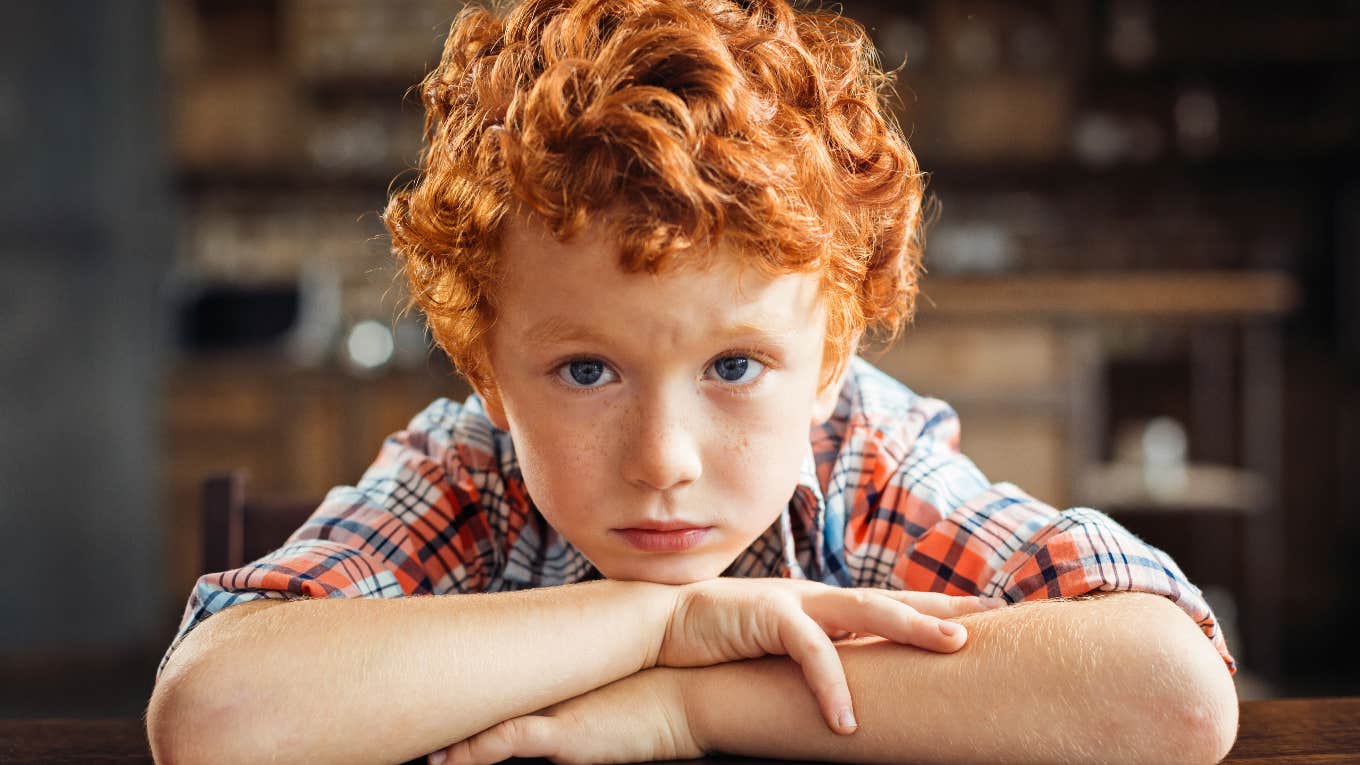6 Things Parents Don’t Realize They Do That Breaks Their Kids' Hearts, According To Experts
Most parents mean well, but sometimes their behavior unintentionally hurts their children's feelings.
 Dmytro Zinkevych | Shutterstock
Dmytro Zinkevych | Shutterstock Life is stressful, and even the best parents sometimes struggle to show up for their kids in the ways they need. There are several behaviors parents do without thinking that unintentionally hurt their child's feelings. But don't worry — parents can repair these patterns, and the first step is noticing and acknowledging these harmful habits.
Here are things parents don't realize they do that break their kids' hearts:
1. Ignore their stories
 Just dance
Just dance
After a long day of work and adult responsibilities, the last thing parents may have the patience for is listening to their child's rambling, nonsensical stories. They're usually about something completely irrelevant or silly, but children are excited to tell their parents these stories nonetheless.
When parents ignore their child's stories, it teaches them that their voice and what matters to them isn't important. Even if you must fake your enthusiasm, a few minutes of rapt attention can make a huge difference. And, later in life, when your child comes to you with other problems, they know you will listen.
2. Withhold affection after misbehavior
A child will inevitably misbehave, but it's how parents react to them afterward that matters. The silent treatment, refusing to hug them or show any affection, or even pulling away, can make a child believe that love is earned. In adulthood, this can impact their ability to form healthy relationships and handle conflict.
3. Yell when they're already overwhelmed
Children have no idea how to regulate their emotions. Oftentimes, they become overwhelmed, and a parent yelling certainly doesn't help. In fact, it makes things worse. Anger makes a child's emotions feel unsafe and unstable. Coming from a place of understanding and calm energy can help a child navigate what they're feeling, instead of creating more chaos.
4. Look at phones during playtime
 fizkes | Shutterstock
fizkes | Shutterstock
Spending time with your child doesn't mean that they're playing and you're scrolling on your phone. When you do that, children start to feel as if they're not as important as a screen. Being engaged with your kid is the key to having a loving, healthy relationship, and, whether you want to admit it or not, they notice when you're only halfway paying attention.
5. Dismiss their feelings
When a child is struggling with something, the worst thing a parent can do is tell them that they're "fine" or "there's nothing to cry about." Not only does this invalidate their emotions, but it can lead to them suppressing their feelings as they get older. So, as a parent, you should strive to create a safe space for your child to express and talk about their feelings.
"If a child routinely had their reality dismissed, minimized, or denied, they can struggle with identifying or expressing their emotions as an adult. They may become emotionally unavailable and can struggle to form or keep intimate relationships when emotional vulnerability is on the line," explained relationship specialist and coach Annie Tanasugarn.
6. Rush them constantly
Children start to feel like an inconvenience when parents constantly rush them and tell them that they need to "hurry up." It can be annoying when a child seems like they're taking their sweet time to get ready, and it can be tempting to rush them. However, over time, this can chip away at a child's mindset. The admittedly slow pace they move is a part of the wonder and curiosity of childhood, so parents should work to show them grace.
Nia Tipton is a staff writer with a bachelor's degree in creative writing and journalism who covers news and lifestyle topics that focus on psychology, relationships, and the human experience.

